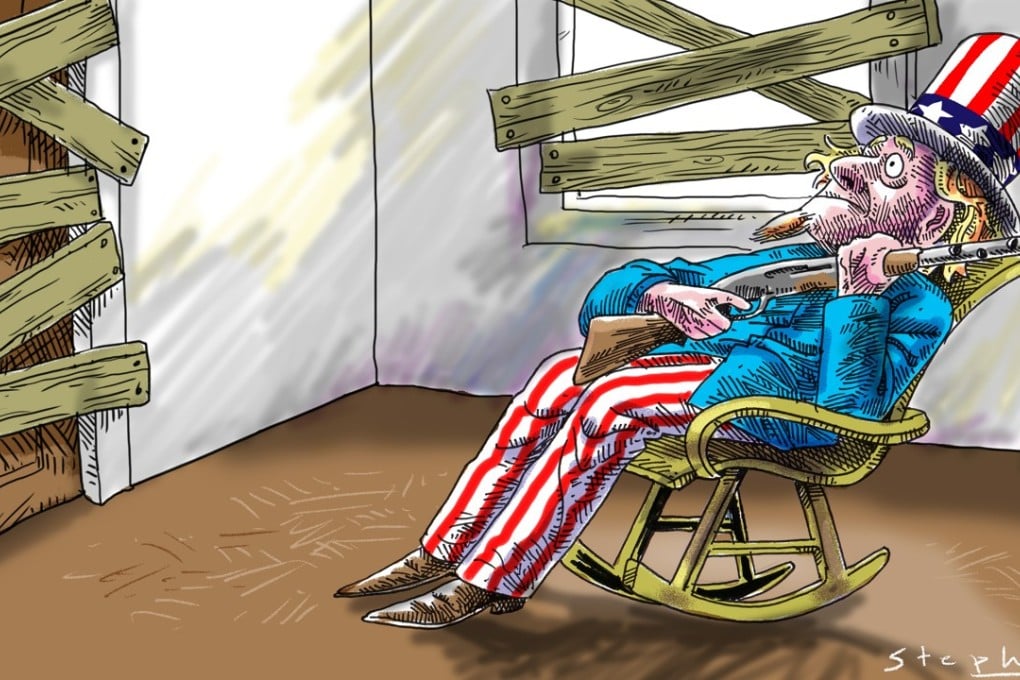China must brace itself for the fallout of America the superpower losing its self-confidence
Tian Feilong warns that US inability to adapt to China’s rise may pose a serious security challenge, as a more suspicious America abandons its strategic patience and opts for more risky strategies to stifle China’s rejuvenation

US-led economic globalisation and the third wave of democratisation, with America in the vanguard, led Francis Fukuyama to proclaim the “end of history”. America’s confidence and swagger in its strategic prowess reached a peak. With US self-confidence at a high, Sino-US relations grew strong. The two developed some camaraderie in the stand-off with the Soviet Union, and learned what it was like to be in a mutually beneficial relationship.
With the US losing its strategic self-confidence and determination, relative to China’s, it is no longer able to face a rising China from the vantage point of calm superiority. We can see this in recent events.
Watch: China-US relations in the Trump era
